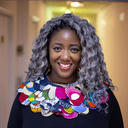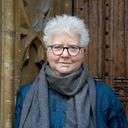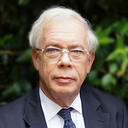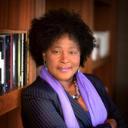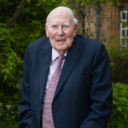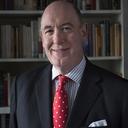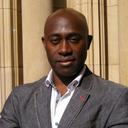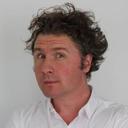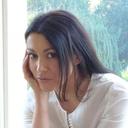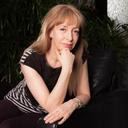JASMINE RICHARDS (LADY MARGARET HALL, 1999)
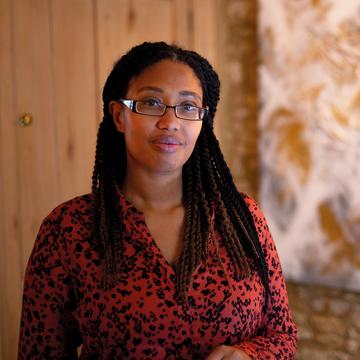
JASMINE RICHARDS (LADY MARGARET HALL, 1999)
The author, editor, publisher and founder of Storymix spoke to us about getting more diversity in children's books, being a black woman first and her advice for aspiring authors
Published: 4 March 2021
Share this podcast
The Alumni Office's Harriet Packer interviews author, editor, publisher and founder of Storymix Jasmine Richards (Lady Margaret Hall, 1999) about developing more diversity in children's literature.
During the conversation Jasmine spoke about her desire to get more BAME representation into children's literature and how she is doing this through her company, Storymix. She also talks about the industry is expanding and developing with new mediums and advice she has for aspiring authors.
She also spoke in depth about what it is like to be a black woman first, the feelings she had coming to Oxford from a north London background, and how this has developed over time to be a space which she owns and embraces.
**This interview was originally recorded in March 2019
00:04 What initially drew you to studying at Oxford?
I think one of the key things, is that lots of the authors that I read as a child went to Oxford, so I kind of thought that’s what you had to do to become a children’s author. Also, at that point I was quite interested in journalism and lots of journalists it seemed went to Oxbridge, so that was the first kind of attraction to Oxford.
00:30 Whilst you were here, was there anything in particular that stood out, straight away, for you?
So one of the things that struck me being Oxford when it came to studying and learning is just the environment, and that occurred to me when I came for the open day. So I was really lucky that I landed at Lady Margaret Hall and when I went for the open day, and walked through into the quad the idea of actually studying there, and in a place that beautiful really struck me and that continued all the way through that actually, environment has a lot to do with how well you learn.
1:03 Do you think that environment helped in cultivating your writing?
Well, Oxford is an incredible place. It’s quite a magical place. I don’t think it’s a coincidence that lots of children’s fiction kind of stem from Oxford; so Tolkein, CS Lewis, Philip Pullman all drawing on Oxford as a place, either in the place where they’ve written it or actual places. So, there’s a lamppost near the Rad Cam, which Mr Tumnus uses in CS Lewis. I think Oxford, the place is really magical so it doesn’t come surprise me that it helps with my writing as well.
1:43 You mentioned these literary landmarks in Oxford, was there a favourite place for you that you and your friends used to go to?
So, one is University Parks, I spent a lot of time in University Parks, and sort of walking there, not riding our bikes, because that’s not allowed, but I was at LMH and the English faculty was on the other side of the Park – that’s all I’m going to say; University Parks is very special. The Radcliffe Camera, incredibly special place for me anyway, I loved going there to study, even if it was cold in the winter, the fact that you could call up any books that you needed, it was magical, really. So I’m still very fond of the Rad Cam.
2:23 In a previous interview you said that you felt like an outsider when you first arrived at Oxford, can you tell us a little bit more about that?
Going to Oxford was a huge, huge deal for me. No one in my family had gone to university. To go from that, to being the first one my family to go to university and going to Oxford, was a big deal anyway. And then also, I grew up in North London, and incredibly multicultural place, arriving at Oxford, and realising I was one of only two black people in college was a really big deal for me; and it took a while to adjust. I think there was also a class issue there as well, having gone to a state school, I just assumed that there was no one else like me there, and I would have nothing in common. So I kind of was very much at the mindset. I’ll come here, I’ll get my degree, and it wasn’t necessarily about making friends. So I didn’t think I was necessarily that approachable to begin with. It took a while for me to feel comfortable and people reaching out to realise that university is about more than getting the degree: that you can make friends for life, that you can meet your future husband there, [you’ve] kind of got be open to the experiences. But that means being a little bit vulnerable. And that did take a little while to, allow that to happen.
For the first term, every weekend, I would run back to London, with my little wheelie suitcase and I was kind of out the door and it was only when one of my tute partners asked me to stay for a weekend and said, ‘You know, we really want to get to know you. We have a lot of fun.’ Kind of, ‘Give us a chance’, and that I did that. And the interesting thing about being a black student at Oxford is that you do know lots of the other students in the other colleges. It’s like a little nods if you see them in town because there’s this, this understanding that we’re all having this experience. And I know many of them did that going back to London, or Birmingham, or Manchester every weekend, that’s something they did for the whole three years, I feel really lucky that someone did say stay get to know us.
4:31 Do you think there was a black student community when you were attending?
You’ve got to remember that it was before social media really and I think if social media had been around at the time, there would have been much more of a community and that feeling of isolation would have been alleviated somewhat. So I recently went to an event and Oxford Black Alumni event, (which was fantastic) and people talking about their experiences from the 60s onwards. And what was really striking is how similar everyone’s experience was, in that feeling of isolation to begin with. Certainly, going home a lot, definitely was a feature. And I think what’s great about students coming up the ranks now is that you know, there are there are groups, there are Facebook groups, that feeling of connection is probably a bit stronger or easier to find.
5:32 So, is it safe to say your fondness for Oxford grew over time?
Did I become fond of Oxford than during my degree? Absolutely. I still live in Oxfordshire now. So Oxford became a second home for me. And the thing that I think is always really surprising when you look back at your time at Oxford is just how short the terms are. So in terms of a year, you actually have more time at home than you do at Oxford. And my degree was only three years, but such a key part of my development as a person, my outlook on the world. It kind of equipped me to go into publishing, which trust me isn’t any more diverse than Oxford. But with an absolute iron cast confidence, which I think is probably one of the greatest gifts that Oxford gives you.
6:16 When you did go back to London, did you notice any differences?
I was actually dating someone. When I went to Oxford, he was an aspiring rapper, but was also doing an engineering degree. And I remember talking to him about Milton’s Paradise Lost. And the scene when Lucifer is falling, and how he changes and that metamorphosis and how it really, you know, the language how beautiful the language was, and there was definitely a slight roll of the eye as I was talking. And it kind of struck me as like, ‘Oh, actually, I am kind of changing’. I’ve always been, (I don’t want to say nerdy) but into reading and into books, and actually kind of embracing that was really freeing and being in Oxford, other people who are passionate about the subjects that they study with. And actually, that’s okay and was definitely part of my development.
7:14 You said there you felt like you were changing, what do you think shaped your time at Oxford?
Sure. So my time at Oxford, shaped by lots of different factors. So, you know, there’s being a woman being a black woman, coming from a working class family, being the first in my family to go to university, and trying to work out how all of these things intersect and influence my experiences at Oxford and beyond is, is quite complicated. So I think, as a black woman, the first thing that people would maybe notice – I’ll talk about publishing, even more than Oxford – is the fact that I’m a black woman. So you have very few people from a working class background in publishing. But I would say you have even fewer people who are black. So when people invite me onto a diversity committee, which has kind of happened, every time I’ve been a new business, a new publishing house, they’re asking me as a black woman, so not asking me as a woman, and they’re not asking me maybe, maybe they don’t know what my class background is. So I think that’s the thing that people notice, first of all, and I’ve kind of become comfortable with it, don’t get me wrong, sometimes it’s, it can be annoying. But being the only black person in the room and kind of feeling like I’m or people feeling like I’m representing the black point of view. And then also, sometimes in Oxford, so many times, people would say, ‘Oh, you’re the first black person I’ve met’, like, that’s, you know, that’s challenging or assumptions about what I may be good at, or I might not be good at. And as an 18 year old, balancing all of those things can be really tricky. But I would say it’s my identity as a black woman that I tend to navigate more than class background.
9:17 So coming from that north London environment to the Oxford one, how did it feel to be a black woman first?
I mean, as, as a woman in my 30s, still living in Oxfordshire, I kind of feel like, I own that space more than I did as an 18 year old, just because I realised that there are so many stories to be told about that experience, that that point of view is desperately needed, as well. And so if people want to see me, as you know, the voice of that, then then I’ll run with it. Because people do need to challenge themselves and think about how we are going to widen access to Oxford. So if, if people want me to get involved with that, I’ll get involved with that. And if we need to think about children’s books, making them more representative, they see me as someone who can help to make that happen, then I’m happy. I’m happy for that. But that’s definitely been a journey. When I left University when I first started working in publishing, this idea that I could fix things, I actually found really found really annoying. It’s like, I just want to acquire great books. I don’t care if they feature BAME characters or working class characters. I just want to publish great books. But I realised now that being one of only a few black publishers, actually that I have the agency to make change. And that’s part of my job. And I’m proud that that’s part of my job because it kind of needs to happen.
10:50 Can you tell us a little bit about the work you’re doing now.
So, in terms of the work that I’m doing now, it’s I kind of think I’m a bit hyphenated, or I have some m dashes between my different occupations. So I’m a children’s author, I write for children. I am working on things at the moment. But something that really struck me with the last two books that I published, and the fan letters that I received, especially from parents was just how pleased they were to see fantasy books that featured characters from a BAME background. And it got me thinking about why we don’t see more books with BAME characters, certainly fantasy books. So a lot of books that are representative tend to be about struggle, or adversity, or set in the past; and it’s kind of about pain. And I just want it to be about going to spy school, or going to, witch and wizard school. (It’s a lot of school here!). But just having adventures; just being a kid. And the whole thing about children’s books is that kids are given power to exist outside of the rules of grownups: and black kids, Asian kids, kids with disabilities, they should all get to do these things. So it got me thinking about how I could affect change, and how I could do that a bit more quickly. And my experience in publishing and my experience as an author kind of intersected and came together. And I came up with the idea for Storymix.
So, I’ve spent a lot of my career working in something called children’s IP developments, (IP is intellectual property). That’s where publishers or other companies might come up with ideas for children’s books, and a team of writers will come together and storyline, a book, and then a series and then you find writers to write those stories and then you sell them to publishers. I decided that I could take my experience as an author, and as a storyliner and create Storymix. So we are essentially a fiction studio, with a focus on inclusivity. So coming up with stories, storylining them, and then finding up and coming talent from BAME backgrounds to write those stories, and selling to publishers. It’s all of those different skill sets coming together to try and make a change as quickly as possible, really, because the thing about series fiction is, it’s not just one book, it might be a six book arc or a twelve book arc. And there was a recent statistic about how only 1% of children’s books published in 2017, in the UK feature of BAME character. So if I sold a six book series with BAME protagonist, I’m going to make quite a difference, quite quickly. So that’s that was the thinking behind Storymix.
13:46 How does it feel, when your readers get in touch?
It’s an incredible feeling, because the thing about writing is, it can actually be incredibly lonely. And even publishing books can be quite lonely, because you hand over this thing that you’ve spent hours and hours on, and it’s published, and then really, it doesn’t belong to you anymore. It’s out there; in the big wide world, and you don’t know how people are going to receive it. So to receive letters from parents is fantastic, but to get actual letters from children, eight or nine year olds, a twelves year olds saying how much they loved your book and what they loved about your book is an incredible feeling.
14:24 Can you tell us a little bit about your day to day when you’re writing.
So in terms of my writing routine that has changed over the years. So before I had children, I had a full time job in publishing, so I tended to work on weekends and in the evenings. Since having children, and becoming a freelance editor, who also writes, I have to split my time between writing novels, and editing and coming up with ideas for Storymix, and also making sure I can get to the kids on time to pick them up from school. So I have to be quite focused, I have to accept that I can’t immerse myself in writing in the way that I used to do. So before you could lock yourself away for hours on end. And really, now I’ve got to do it in short bursts. So it’s a very different feeling. It takes me much longer. And actually even the idea of writing longer books, I find quite challenging. So it’s interesting that actually, the books that I’m working on at the moment are tending to be shorter, because the blocks of writing time I have are shorter so in terms of how it’s influencing my writing it is quite interesting.
So the great thing about only having short blocks of time to write is that it stops procrastination. And procrastination is a great enemy of writers. Definitely something that I struggled with before, you’d find anything else to do other than writing. And now I don’t have the luxury of that, so you actually have to get down to it. And there’s a saying about, you know, the muse will find you but you’ve got to be sitting there ready to write and I have definitely found that to be true.
16:03 For you, what do you find the best part of being a writer is?
Interestingly, there’s two parts of that. So it’s the initial idea, I’m a terrible one having an idea for a story and I get really excited about you know, I’ll do a spidergrams and I’ll think about my characters. And then you’re faced with the blank page and I actually find writing the book the hardest bit. So I love coming up with the idea and actually love editing, which is a good thing (since I’ve been an editor for 15 years), but actually writing the book, doing the first draft I find really difficult. But the thing that you learn is writing is rewriting and I know that I can fix anything. So even if it’s a terrible first draft, I can make it right, it’s just getting through and finishing. And that’s one of the things that I would say to writers is: you’ve just got to finish that first draft not give up.
16:57 So when you’re not writing, what do you to try and relax?
I wish I could say it was reading, I used to love reading. But I’ve actually found my attention span for reading isn’t what it used to be. But I am loving audiobooks. And I think there’s something really interesting happening with audiobooks and podcasts at the moment in terms of how we are living our lives on the go. So you know, when I’m off on the school run, it is part of my relaxation to listen to a podcast on my way to doing that, because you’ve got to find it in the snippets of time, and you’ve kind of got to make it all work for you. So probably listening to podcasts and audiobooks at the moment is the thing that really relaxes me.
17:40 What you say are the challenges, and I suppose the opportunities, of these new forms of media are for writers?
Oh, it’s a good question. In terms of how readers are consuming stories, I think there are some huge opportunities out there. So there’s something around audiobooks, I think, for children, really immersive soundscapes coupled with stories, I think there’s could be something, it’s happening a little bit already, but someone who really had to know how to really think about soundscapes would be brilliant. There’s also something about how, you know, children are consuming media, on YouTube, rather than on normal television. And I love the idea of creating books that exist outside of the printed page so you might read the book and then continue the adventure, or the experience via YouTube or via gaming, or in these other ways. So it’s kind of the story is still at the centre, but the way the story is experienced is through different mediums.
18:51 Do you think that’s the responsibility of the writer, to ensure that their work can be repurposed for those mediums?
I think the days that writers can kind of sit in their garret somewhere, just writing prose, are kind of behind us. If you want to engage with children, and actually adult readers as well, thinking about how these stories can be consumed in different mediums, the smart writer should be thinking about that. And I’m not saying they should know how to code or be videographers, but pairing up with people collaborations with people to find ways to reach established audiences, but also new ones as well.
19:29 Is there any advice that you could give to aspiring authors?
Well, I think the first thing I would say is to actually read children’s books, I’m going to talk specifically about children’s books, because that’s my expertise. But the number of authors or aspiring authors to get in touch with me with text, and it’s really clear, they haven’t really read other children’s books. So haven’t really got an idea of what children today are reading, how they may speak to each other or the different age ranges. You don’t even need to go to a bookshop, go to a library and just immerse yourself: look at what a three to five year old is reading, you know, what are the length of the sentences, doing the research really matters because actually, when you’re submitting to agents and publishers, they are looking to see that you understand the market. So a great story is important, absolutely; but they want to see that you know where to pitch that story. So I’d say that’s the key thing is to actually read children’s books, you know, consume them.
I think another key thing is practice, is writing a little bit every day. And looking at other books to see what you think may do well, so actually, you don’t even need to make all of those mistakes yourself, you know, read other writers and go ‘Actually, I would have done that differently’, is really important. I think it is important also to have some kind of platform or hook. That doesn’t mean I think your time should be spent writing a book rather than doing blogs or being an Instagramer. But actually, some kind of hook to really attract a publisher is going to be helpful, because I’ve sat in countless acquisition meetings where editors bring multiple books, and you know, the sales team have to sell into Waterstones or WHSmith, you know, they’re looking for the hook, because they’re going to be sitting there in front of that buyer, who’s looking at books from across the publishing industry. Why is the book that the publishing houses presenting? Why should that go before another one and think every book that is going to be put on a bookshelf, another book is going to have to come off for that book. So there needs to be a really tangible reason.
21:59 How do you think publishing has changed over the last 20 years?
I think everything feels a lot faster. So established authors now had quite a few books that they could practice on, they didn’t have to be a best-selling author straight away. Publishers are people who love books, and they still want to give authors that opportunity, but the market pressures make it very difficult for that to happen. So yes, publishers are still looking for great stories, they still understand that they are publishing books and not making baked beans, you know, these are each individual pieces of art. But there is a pressure for a book to perform. For an author to nail it, first time, which I think didn’t exist in the same way 20 years ago.
22: 45 And our final question for you is, how do you feel Oxford changed you?
I think it made me so much more confident in my abilities. I got into Oxford, I got the grades, I got my degree, and I kind of felt like there is nothing that is going to be harder than that, you know, there was lots of stuff I had to kind of catch up on during my degree in Oxford. I hadn’t done a language as a GCSE so studying Old English was really challenging. But my tutor was incredibly supporting in that. I kind of feel like I didn’t necessarily always have those essay skills as well, you know, so there was a lot of catch up, and I survived that and I kind of thrived at Oxford. So leaving there as a 21 year old I was kind of like, bring it on. That’s what Oxford did for me it meant I could say, bring it on.



